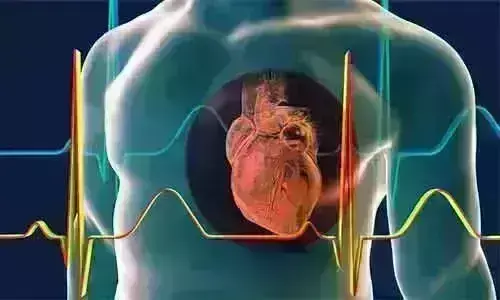- Home
- Medical news & Guidelines
- Anesthesiology
- Cardiology and CTVS
- Critical Care
- Dentistry
- Dermatology
- Diabetes and Endocrinology
- ENT
- Gastroenterology
- Medicine
- Nephrology
- Neurology
- Obstretics-Gynaecology
- Oncology
- Ophthalmology
- Orthopaedics
- Pediatrics-Neonatology
- Psychiatry
- Pulmonology
- Radiology
- Surgery
- Urology
- Laboratory Medicine
- Diet
- Nursing
- Paramedical
- Physiotherapy
- Health news
- Fact Check
- Bone Health Fact Check
- Brain Health Fact Check
- Cancer Related Fact Check
- Child Care Fact Check
- Dental and oral health fact check
- Diabetes and metabolic health fact check
- Diet and Nutrition Fact Check
- Eye and ENT Care Fact Check
- Fitness fact check
- Gut health fact check
- Heart health fact check
- Kidney health fact check
- Medical education fact check
- Men's health fact check
- Respiratory fact check
- Skin and hair care fact check
- Vaccine and Immunization fact check
- Women's health fact check
- AYUSH
- State News
- Andaman and Nicobar Islands
- Andhra Pradesh
- Arunachal Pradesh
- Assam
- Bihar
- Chandigarh
- Chattisgarh
- Dadra and Nagar Haveli
- Daman and Diu
- Delhi
- Goa
- Gujarat
- Haryana
- Himachal Pradesh
- Jammu & Kashmir
- Jharkhand
- Karnataka
- Kerala
- Ladakh
- Lakshadweep
- Madhya Pradesh
- Maharashtra
- Manipur
- Meghalaya
- Mizoram
- Nagaland
- Odisha
- Puducherry
- Punjab
- Rajasthan
- Sikkim
- Tamil Nadu
- Telangana
- Tripura
- Uttar Pradesh
- Uttrakhand
- West Bengal
- Medical Education
- Industry
Severe hypoglycemia related to heart failure risk in type 2 diabetes patients: Study

USA: Severe hypoglycemia is associated with a greater risk of heart failure, reveals a study of a large cohort of adults with type 2 diabetes. The study appears in the Journal of Clinical Endocrinology & Metabolism.
In the study, Justin B Echouffo-Tcheugui, Johns Hopkins School of Medicine, Baltimore, MD, USA, and colleagues evaluated the association of severe hypoglycemia with incident HF among individuals with type 2 diabetes. The association was investigated in participants of the Action to Control Cardiovascular Risk in Diabetes (ACCORD) study.
The researchers assessed severe hypoglycemia episodes during the initial 24 months following randomization and defined using 2 methods: (1) symptomatic, severe hypoglycemic event requiring medical assistance (first definition); or (2) requiring any assistance (second definition). They prospectively followed participants without HF at baseline and during the first 24 months of the study for HF hospitalization. Adjusted hazard ratios (HR) were generated for the association of severe hypoglycemia and incident HF.
The study revealed the following findings:
- Among 9208 participants (mean age 63 years, 38% female, 62% White), 365 had ≥ 1 episode of severe hypoglycemic.
- Over a median follow-up duration of 3 years, there were 249 incident HF events.
- After multivariable adjustment for relevant confounders, participants with severe hypoglycemia requiring medical assistance had a 68% higher relative risk of incident HF (HR 1.68), as compared with individuals who never experienced any episode of hypoglycemia.
- Severe hypoglycemia requiring any assistance was also associated with a 49% higher relative risk of HF (HR 1.49).
The authors concluded, "in a large cohort of adults with type 2 diabetes, severe hypoglycemia was independently associated with greater risk of incident HF."
Reference:
Justin B Echouffo-Tcheugui, Arnaud D Kaze, Gregg C Fonarow, Sam Dagogo-Jack, Severe Hypoglycemia and Incident Heart Failure Among Adults With Type 2 Diabetes, The Journal of Clinical Endocrinology & Metabolism, 2021;, dgab794, https://doi.org/10.1210/clinem/dgab794
Dr Kamal Kant Kohli-MBBS, DTCD- a chest specialist with more than 30 years of practice and a flair for writing clinical articles, Dr Kamal Kant Kohli joined Medical Dialogues as a Chief Editor of Medical News. Besides writing articles, as an editor, he proofreads and verifies all the medical content published on Medical Dialogues including those coming from journals, studies,medical conferences,guidelines etc. Email: drkohli@medicaldialogues.in. Contact no. 011-43720751


